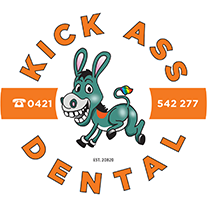Understanding Tooth Pain and the Search for the Best Painkiller
The Agony of Tooth Pain
When it comes to dental problems, few things are as excruciating as tooth pain. Whether it’s a dull ache or a sharp, stabbing sensation, tooth pain can disrupt daily activities, ruin meals, and keep you up all night. Finding relief becomes a top priority, and one common solution is reaching for over-the-counter painkillers. But with so many options available, it can be challenging to determine which painkiller is the most effective for tooth pain. In this article, we will explore some of the best painkillers for tooth pain and discuss their benefits and limitations.
1. Acetaminophen (Tylenol)
Overview
Acetaminophen, commonly known by the brand name Tylenol, is one of the most widely used pain relievers in the world. It is an over-the-counter medication and is often the first choice for mild to moderate tooth pain.
Effectiveness
Acetaminophen is effective in reducing tooth pain, particularly when the pain is mild. It works by blocking pain signals in the brain, offering relief for a few hours. However, it does not have significant anti-inflammatory properties, so it may not be as effective for severe tooth pain caused by inflammation.
Considerations
One critical consideration with acetaminophen is its potential for liver toxicity when taken in excessive amounts or combined with alcohol. Users should strictly adhere to the recommended dosage and avoid prolonged use without medical supervision.
2. Ibuprofen (Advil, Motrin)
Overview
Ibuprofen, commonly sold under brand names Advil and Motrin, is a nonsteroidal anti-inflammatory drug (NSAID) available over the counter. It is known for its effectiveness in reducing pain, inflammation, and fever.

Effectiveness
Ibuprofen is highly effective in managing tooth pain, especially when it is caused by inflammation, such as in the case of a toothache or gum infection. It reduces swelling around the affected area, providing relief from pain and discomfort.
Considerations
While ibuprofen is generally safe when used as directed, it may cause stomach irritation or bleeding in some individuals. People with a history of stomach ulcers or gastrointestinal issues should use it with caution. Additionally, long-term use of ibuprofen can lead to adverse effects on the kidneys, so it is essential to follow the recommended dosage and not rely on it as a long-term solution.
3. Naproxen (Aleve)
Overview
Naproxen, commonly known by the brand name Aleve, is another NSAID that provides relief from pain and inflammation.
Effectiveness
Naproxen is highly effective in managing tooth pain due to its potent anti-inflammatory properties. It can offer longer-lasting relief compared to some other painkillers, which makes it a preferred choice for tooth pain that persists for an extended period.
Considerations
As with other NSAIDs, naproxen can cause gastrointestinal side effects, and it is essential to stick to the recommended dosage. People with kidney issues should avoid naproxen, as it can put additional strain on the kidneys.
4. Clove Oil
Overview
Clove oil is a natural remedy that has been used for centuries to alleviate tooth pain and oral discomfort. For kick ass dental croydon see here.

Effectiveness
Clove oil contains eugenol, a compound with natural analgesic and anti-inflammatory properties. Applying a small amount of clove oil directly to the affected tooth or gums can provide temporary relief from tooth pain.
Considerations
While clove oil can be effective for mild tooth pain, it is not a long-term solution and should not be used as a substitute for professional dental care. Additionally, some individuals may be allergic to clove oil, so it’s essential to perform a patch test before using it.
5. Prescription Painkillers
Overview
In cases of severe tooth pain, your dentist may prescribe stronger painkillers, such as opioids, for short-term use.
Effectiveness
Prescription painkillers can be highly effective in managing intense tooth pain, but they should only be used under the guidance of a healthcare professional. They are generally reserved for severe pain that cannot be adequately relieved with over-the-counter medications.
Considerations
The use of prescription opioids should be strictly limited to the prescribed dosage and duration due to the risk of dependency and abuse. It’s essential to discuss any concerns or past history of substance abuse with your dentist before starting prescription painkillers.
Conclusion
Finding the best painkiller for tooth pain depends on various factors, including the severity of the pain and any underlying health conditions. For mild tooth pain, over-the-counter options like acetaminophen or ibuprofen can offer effective relief. If the pain is due to inflammation, ibuprofen or naproxen may be more suitable choices. Clove oil can be a natural alternative for temporary relief, but it should not replace professional dental care.
Remember that painkillers provide temporary relief and do not address the root cause of tooth pain. If you experience persistent or severe tooth pain, it’s essential to consult a dentist promptly for a proper diagnosis and treatment plan.
As with any medication, always follow the recommended dosage, and if you have any concerns or questions about which painkiller to use, consult with your healthcare provider or dentist for personalized advice. Taking a proactive approach to oral health, including regular dental check-ups and practicing good oral hygiene, can also help prevent future episodes of tooth pain and promote overall well-being.
By incorporating the best painkiller for your specific needs and addressing the underlying dental issues, you can alleviate tooth pain and maintain a healthy, happy smile.





